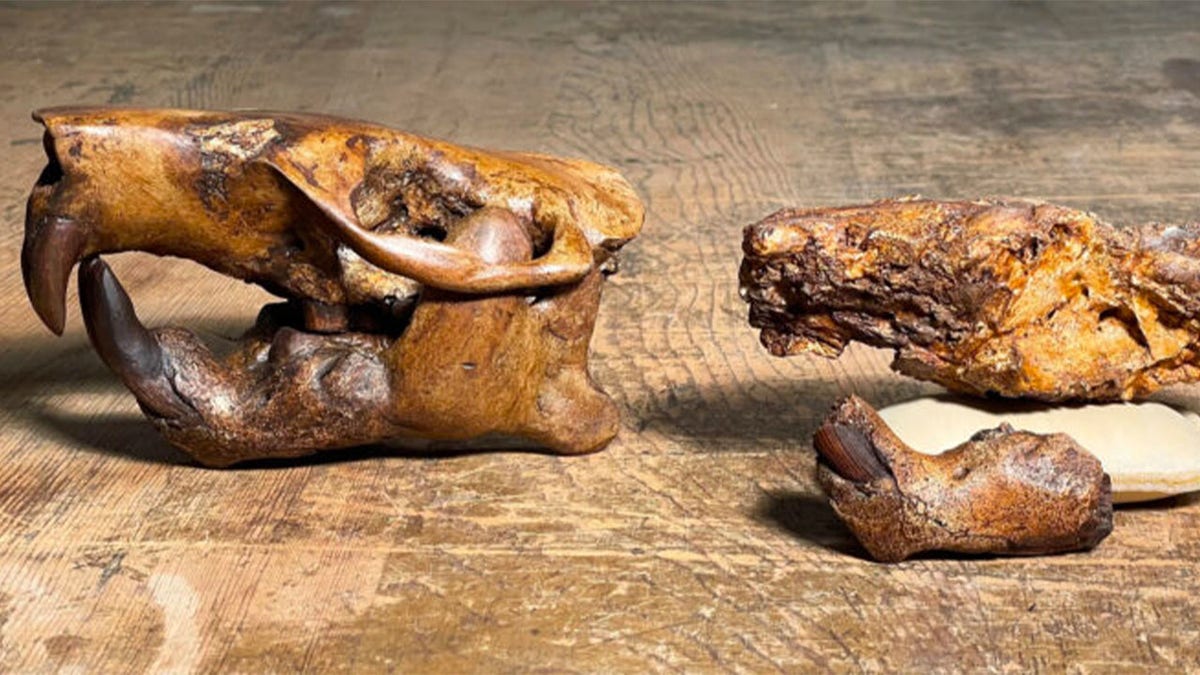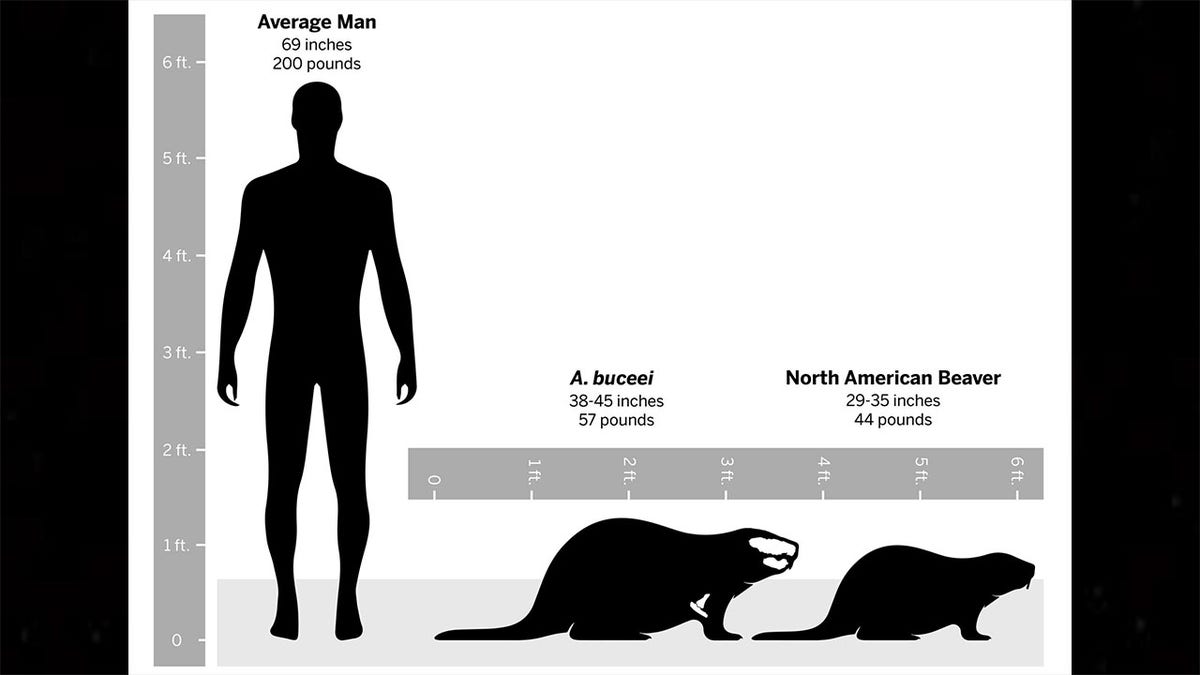Fox News Flash top headlines for March 27
Fox News Flash top headlines are here. Check out what's clicking on Foxnews.com.
Researchers at the University of Texas at Austin have named a newly discovered species of ancient beaver after Buc-ee’s, the chain of convenience stores known for its namesake mascot.
The new species is called "Anchitheriomys buceei," or "A. buceei" for the rest of us.

The researchers' findings were published in the journal Palaeontologia Electronica. (UT JACKSON SCHOOL OF GEOSCIENCES)
Research associate Steve May of the UT Jackson School of Geosciences, told UT News the name was inspired by the beaver’s Texas connection and a chance encounter with a Buc-ee’s billboard that read: "This is Beaver Country."
"I thought, ‘Yeah, it is beaver country, and it has been for millions of years,’" May told the outlet.
HAIR COMB MADE FROM PART OF A HUMAN SKULL UNEARTHED IN ENGLAND: ‘TRULY ASTONISHING’
His paper describing the new species – as well as a smaller species of fossil beaver – was published in the journal Palaeontologia Electronica. Bones and archival records suggest the animal lived along the Texas Gulf Coast between 15 and 22 million years ago.
The fossils also show A. buceei that were about 30% larger than modern beavers roaming Texas today – though smaller than the "bear-size" beavers in North America during the Ice Age.

A diagram showing how the A. buceei compares to a modern North American Beaver. (UT Jackson School of Geosciences)
Most of the fossils have been reconstructed from a partial skull from Burkeville, Texas. It’s a fusion of bone and brain cast created when sediment seeped into the beaver’s brain cavity, creating a rock replica of the brain as the specimen fossilized.
CLICK HERE TO GET THE FOX NEWS APP
May and Matthew Brown, the study’s co-author, used high-resolution X-ray images of the skull to bring into view anatomical details that helped confirm it was a new species.
After hearing of the new species’ name, Buc-ee’s CEO and founder Arch "Beaver" Aplin III quipped: "Buc-ee’s was founded in 1982, but we may need to rethink our beginnings."
Buc-ee's has become so deeply enmeshed in Texas culture that even the Alamo gave it a social media shout-out in 2018.






















